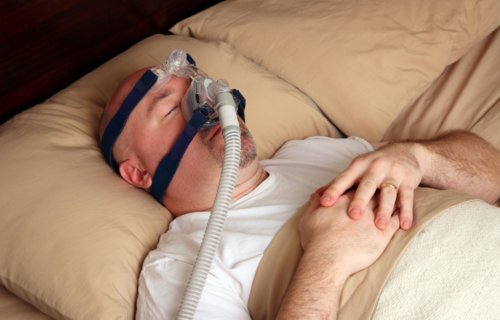ADELAIDE, Australia — Estimated to affect nearly a billion people on a global scale, obstructive sleep apnea (OSA) is an incredibly common condition. In fact, it’s the most common breathing disorder connected to sleep. Now, researchers from Flinders University say that a drug previously used to treat depression may help reduce the severity of OSA.
While this finding probably won’t lead to a full-on sleep apnea cure, the research team is optimistic that their work opens the door for the development of new drug treatments targeting the large percentage of OSA patients who can’t tolerate current sleep apnea treatments, such as continuous positive airway pressure (CPAP) machines.
“Obstructive sleep apnea can be a debilitating disease, causing poor quality sleep at night and sleepiness during the day,” says lead study author Dr. Thomas Altree from FHRMI: Sleep Health (formerly the Adelaide Institute for Sleep Health) in a university release. “It affects millions of Australians and causes major impacts on health and productivity.”
“Recent research found a combination of the medicines reboxetine and oxybutynin, which were both previously used for unrelated conditions, could be an effective treatment for obstructive sleep apnea but can cause side effects,” Altree continues. “We wanted to see if reboxetine on its own could be effective and assess exactly how it changes breathing during sleep.”
Using CPAP doesn’t always work
Study authors conducted a double blind, placebo controlled, randomized, multi-center cross-over trial in collaboration with the Woolcock Institute in Sydney. The trial included 16 people diagnosed with OSA. They compared single doses of reboxetine to a combination of both reboxetine and oxybutynin, or a placebo.
“Our results showed that reboxetine on its own can reduce sleep apnea severity,” Dr. Altree reports. “We found the drug reduced the number of sleep apnea events per hour and also improved oxygen levels, while the addition of oxybutynin didn’t cause additional improvements.”
“We also used a state-of-the-art computing method to determine how the drug stabilizes breathing during sleep, which allows us to identify which patients might benefit most from the drug in the future.”
These findings represent the first-ever piece of evidence suggesting reboxetine alone reduces OSA severity and provide valuable insight into the role of norepinephrine reuptake inhibitors on upper airway stability while we sleep.
“The current gold-standard treatment of sleep apnea is with a CPAP device during sleep. But this one-size-fits-all approach doesn’t address the fact that there are different causes for sleep apnea. In addition, many people can’t tolerate CPAP in the long term,” Dr. Altree concludes. “It’s therefore important we discover other avenues to assist people, and this study provides an important step for future drug development.”
The study is published in the Journal of Clinical Sleep Medicine.

